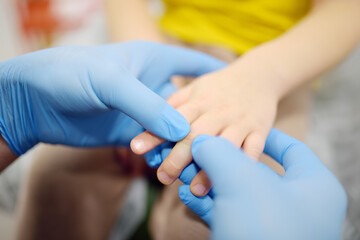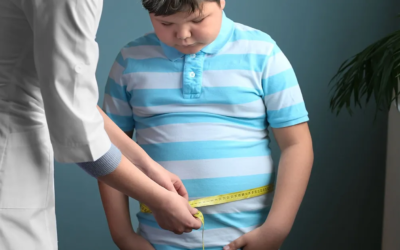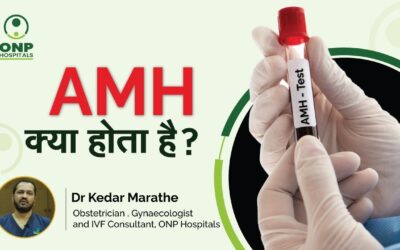As a pediatrician at ONP Hospitals, I’ve witnessed countless stories of resilience and recovery, but one case stands out—little Anaya’s story. Anaya, a spirited four-year-old, came to us after a severe finger injury that happened while she was playing in the backyard....
What Are the Symptoms of Breast Cancer?
Overview
Breast cancer is cancer that forms in breast cells. Women are mostly diagnosed with this cancer. Although it can be seen in both men and women, it is more prevalent in women.
Breast cancer occurs when some of the breast cells grow abnormally and rapidly and accumulate to form a lump or mass. The bad news is that these cancerous cells from the breast can spread to other parts of the body through your lymph nodes. Hence, you need to look out for any signs of a lump or any other changes in your breast even if your recent medical examination was normal. In this blog, you will learn about signs and symptoms of breast cancer that can surely help you with early diagnosis & to receive treatment.
Symptoms of Breast Cancer
The most common symptom of breast cancer is a lump in the breast. However, depending on the breast cancer you have, your symptoms may differ. In contrast, many breast cancer patients will develop a lump, not all will. As a result, it’s critical to be aware of the various indications and symptoms.
The signs and symptoms of breast cancer are split into two categories: Breast cancer symptoms include:
Changes in the breast’s appearance and touch
The changes in the look and feel of the breasts are:
- Lump
Breast lumps may range from painful to non-painful, firm and inflexible to soft and malleable. Most of them, such as tissue growth or a cyst, are completely benign.
Your breast lump will most likely go away without treatment, but you should always see your doctor for a complete diagnosis. A breast examination, a breast x-ray (mammogram), ultrasound, or a biopsy, in which some of your cells are sent out for testing, may be performed or referred by your doctor.
- Swelling
Breasts may swell for various causes, including before your period begins if you’re pregnant or have just given birth, or even specific meals and beverages. Another reason is cancer; however, it is less prevalent.
You may feel a weight in your breast and pain and discomfort if you have breast swelling. Breast swelling may be typical for you, but if you’ve seen anything unexpected lately, always consult your doctor for peace of mind.
- Dimpling
Many individuals have dimples on their faces, which some people find adorable. However, a dimple on your breast, which may be more noticeable as you lift your arms, might indicate cancer.
A dimpling effect may occur when something pulls on the skin, such as a tumor or cyst (whether malignant). If you detect dimpling on your breast, go to your doctor right away since it might be a sign that something is wrong.
- Rash
Breast redness and swelling are signs of amiss, although they aren’t always due to a serious ailment like cancer. It’s most likely because of an infection, a skin disease such as psoriasis, or an allergic response – maybe you used a new lotion or washing powder.
If you suffer from any of the symptoms listed above, seek medical help. Don’t wait to see if it goes on its own, if you may require medication if the cause is an infection.
- Texture
If the texture of your breast has altered – it may be rough, bumpy, or similar to that of an orange peel – it might indicate cancer, although it isn’t necessary.
Orange-peel skin may appear on other regions of your body, such as spots where you have cellulite or an infection, and some pregnant women’s breasts may acquire it naturally as they expand. However, if this is a new situation for you, you should always get it looked out.
Changes in the nipple
Not only may the breast alter, but so can the nipple, which is generally more noticeable. Please continue reading to learn about the many indications and symptoms to watch for in your nipples.
- Discharge
Women’s nipple discharge is common, and hormone fluctuations, a side effect of medications like the contraceptive pill, or leaking breast milk may cause it. Nipple discharge in males is not typical.
It might indicate breast cancer if nipple discharge is unusual for you, or if it’s bloody or smelly if you’re not pregnant or nursing, or if it’s accompanied by other symptoms like a lump, soreness, redness, or swelling.
- Inverted
Inverted nipples may be inherited or developed as you get older, due to nursing or injury, or as a side effect of certain diseases and illnesses. It may, however, be a sign of breast cancer.
If you’ve always had an inverted nipple (for example, since birth), it shouldn’t be a reason for worry; but, see your doctor if it’s new or is accompanied by other symptoms like discharge or discomfort.
- Scaliness
It might be an early indicator of breast cancer or Paget’s disease if the nipple has a scaly, eczema-like texture (which could spread to the areola).
Inflamed, painful, itchy, or burning sensations are common in the nipple. It’s usually nothing serious, but if your nipple has a dry, scaly feel or changes in texture, you should see your doctor.
Conclusion
The body emits various warning indicators if there is any medical issue. The most frequent is the breast lump, which may be seen anywhere from your chest wall to beneath your armpit. You can have nipple bleeding or discharge, as well as soreness. Your nipple may seem flattered or caved in, and there may be redness and/or swelling in any part of the breast or one breast but not the other.
Consult an expert immediately if you notice even a slight amount of change. You can also talk to our expert oncologist about breast cancer in detail.
About Author
More Blogs
Addressing Childhood Obesity: Preventative Measures and Healthy Lifestyle Choices
Childhood obesity is growing concern. More kids...
Healthy Sleep Habits for Children: Tips for Parents
Good sleep is essential for children’s health...
The Role of Diet and Nutrition in Managing Encopresis in Children: Insights from Dr. Amita Phadnis
Encopresis, a condition characterized by...
More Videos
Dr. Amita Phadnis’s Full Speech on Survival & Health Rights at UNICEF India.
Dr. Amita Phadnis ,M.D., Gave a Motivating Speech
Breast cancer is cancer that forms in breast cells. Women are mostly diagnosed with this cancer. Although it can be seen in both men and women
What is AMH
The granulosa cells in your ovarian follicles create the anti-Mullerian hormone, often known as AMH. According to the American College of Obstetricians and Gynecologists (ACOG), the generation of AMH is a reflection of your ovarian reserve.
FAQ’S
Pregnancy and Migraine Headaches: What Women Need to Know
When you are pregnant or breastfeeding, then...
What Is the Problem of Orthopedics in Children?
While orthopaedic problems are commonly seen in and associated with the elderly, it’s important to be alert regarding the fact that they can afflict young people and children as well.
All You Need to Know About Reproduction
Most science students have to study about reproduction in their high school syllabus, and some learn from their parents, who may discuss it even earlier. It’s a very good thing to know about our own bodies…




 Home
Home Videos
Videos


